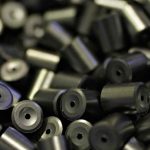The original 3.8 million doses of the vaccine has been cut to 1.2 million and there is now renewed uncertainty over where Australia now stands.The Morrison Government had lobbied for an exemption of the new EU rules but one was not granted as Europe grabbles with high infection rates and a slow rollout of the vaccine.According to the report, countries including Algeria, Egypt, Jordan, Lebanon, Libya, Morocco, Palestine, Syria, Tunisia, Armenia, Azerbaijan, Belarus, Georgia, Israel, Moldova, Ukraine, Norway, Serbia, Switzerland and the Vatican City were granted exemptions.The EU said the new rules were introduced “to ensure timely access to COVID-19 vaccines for all EU citizens and to tackle the current lack of transparency of vaccine exports outside the EU’’.Germany, has been warned of “at least another 10 weeks of shortages”.That news came as Victoria has recorded zero new locally acquired cases of coronavirus in Saturday’s numbers.The promising figure, marking 24 days of no community transmission, comes as 13,072 Victorians got tested in the 24 hours to midnight.One new case was reported in the state’s hotel quarantine system.
COVID DATA BREACH HITS AUSSIESThousands of Australians stranded overseas have been embroiled in a data breach bungle after learning they may not be able to return home. Hours after Emirates announced it was suspending all flights leaving the United Kingdom, the Department of Home Affairs and Trade contacted Australians who had been booked on a repatriation flight scheduled to leave London on Saturday to inform them their personal information had been subject to a data breach.
The passengers’ full name, date of birth, phone number, email address, gender, current location, booking information and essential passport details including passport numbers had been “unintentionally copied to one of the department’s consular clients on 24 January”.Following the breach, DFAT said told the affected passengers that “immediate action to mitigate any impact resulting from the inadvertent sharing of a flight manifest” had been taken. It is not clear who the consular client referred to in DFAT’s email was. It is the fourth data breach DFAT has reported since August 2020.
The crushing news came after Britain closed its borders to all flights from Dubai to stop the spread of the South African COVID-19 variant.Emirates had only just resumed flights after stopping routes into Sydney, Brisbane and Melbourne following Australia’s quarantine caps. 5800 of the 39,000 Australians registered with DFAT are currently within the UK.Qantas still has almost 20 repatriation flights to go before March, but they have been selling out within 15 minutes.On Friday, Australian Health Minister Greg Hunt said the government is open to scheduling additional repatriation flights. “If more flights are needed, more will be provided,” Hunt said.Announcing its cancellations, Emirates issued a statement that read, “As directed by the UK government, Emirates will be suspending passenger services between Dubai and all our UK points – Birmingham, Glasgow, London, Manchester, effective 1300hrs GMT on 29 January 2021 until further notice.“We regret the inconvenience caused, and affected customers should contact their booking agent or Emirates call centre for rebooking.” The UK has tightened its borders as its vaccine program gathers pace with more than 7.5 million delivered so far. The country was following Australia’s lead in bringing in hotel quarantine for people from high risk countries, while some countries have been black-listed.
NED-2712 Aus Vaccine Hopes REBUILD
JOBKEEPER PAID TO DEAD PEOPLEDead people, criminals behind bars and people living overseas were signed up to receive the lucrative $1500 JobKeeper payment by employers looking to rort the wage subsidy.The Australian Taxation Office had investigated the cases of almost 6000 people by the end of September, documents obtained under freedom of information reveal. Of those cases, almost a third were found to be ineligible for the $1500 fortnightly wage subsidy. According to the documents, the ATO flagged JobKeeper recipients as suspicious for the following reasons: ‘Client is in jail’, ‘Has valid visa but client is out of the country’, and ‘Employee … is deceased’.
The JobKeeper $130b scheme was hastily put together in March at the beginning of the COVID-19 pandemic. Labor’s treasury spokesman Jim Chalmers described the revelations as “humiliating” for the Coalition, which had criticised similar rorts under Labor during the Global Financial Crisis.“Just for once, Josh Frydenberg needs to come out today and take responsibility for the fact that JobKeeper money is going to workers that don’t exist,” he said.“If something’s going well, Josh Frydenberg and Scott Morrison are all over it, in front of the cameras taking credit, elbow bumps, pats on the back for each other. “But when something’s going wrong as it clearly is with JobKeeper here, then we need to see the Treasurer and the Prime Minister actually take responsibility for it.”Asked if the revelations were an embarrassment, Treasurer Josh Frydenberg said: “JobKeeper has been a remarkable program.”He said he was “confident” in the ATO’s ability to manage compliance. “ (JobKeeper) has supported 3.6m Australian workers and around one million Australian businesses,” he said. The ATO would not reveal how many dead or incarcerated people had been registered for the payment, but said the vast majority of the 95,000 compliance reviews it had conducted had found no wrongdoing.“The ATO knows the vast majority of Australians are honest, and we have uncovered very few attempts to deliberately cheat the system,” a spokesperson said. “Our sophisticated compliance measures quickly identify potential rorts and payments are automatically stopped for further verification.“Since the first payments were made in April, we have monitored every payment, every day, every month, and we will continue to do so until the last payment is made.”
Labor has joined a number of hard-hit sectors in demanding the scheme be extended beyond its scheduled end date in March.“When Cairns and places like it are on JobKeeper life support, Josh Frydenberg and Scott Morrison shouldn’t be pulling the plug,” Mr Chalmers said.
But Mr Frydenberg stood firm on the timetable, insisting the scheme was always “a temporary and targeted program” designed to get Australia through the worst of the crisis. He also hit back at Queensland Premier Annastacia Palaszczuk over her demand that the subsidy, currently paid to about 170,000 businesses across the state, be extended.“We have delivered more than three times what the Queensland government has committed to,” he said.“We’d welcome further announcements by the Palaszczuk government and from all state governments to reach into their pockets and provide the support that is necessary as part of Australia’s economic recovery.”ATO figures revealed about 450,000 businesses, and 2 million individuals, had come off the supplement between September and October. It came after the government tightened eligibility requirement for the paymentGREG HUNT REACTS TO ASTRAZENECA ROWAustralia’s medicines watchdog the Therapeutic Goods Administration will make its own decision on whether the AstraZeneca vaccine is safe for use in those aged over 65 even though German authorities have recommended against its use in this age group, Health Minster Greg Hunt said.The head of the TGA Professor John Skerritt has indicated there is no risk to the elderly from the vaccine, but the authority has yet to approve the vaccine.The UK had no concerns about using the vaccine across the same age group during their preliminary rollout, Mr Hunt said.Australia had contracts to supply 140 million doses of different vaccines and was prepared for a range of outcomes if the AstraZeneca vaccine could not be used in the elderly, he said.50 million doses of the AstraZeneca vaccine are being produced locally in Australia, which Minister Hunt says will not be exported overseas. “With regards to the 50 million doses, they are direct contract between the Australian Government and CSL and therefore for delivery here in Australia. We don’t see in any circumstances under which they wouldn’t be provided in full to Australia,” he said.
Mr Hunt also said Australia’s Foreign Minister Marise Payne was contacting the World Health Organisation and European authorities to secure supplies of alternative vaccines under contract for Australia where they are being produced overseas.Mr Hunt welcomed positive clinical trial results of the Novavax COVID-19 vaccine overnight. Australia has purchased over 50 million doses of the vaccine, with Mr Hunt saying it will be supplied to Australia in the second half of this year.Two million doses of AstraZeneca COVID-19 vaccine will be available to Australians from late March, and vaccination with the Pfizer vaccine will commence in late February, Mr Hunt clarified.Highly infectious new variants of the COVID-19 virus, particularly one from South Africa, appear to be outsmarting existing vaccines which are not as effective against them as earlier strains.Pfizer, Moderna and Novavax have already signalled they are working on new vaccines to combat the latest variants and this could challenge Australia’s vaccine rollout.“I’d be cautious on making judgments on existing vaccines against the variance at this point in time, that will remain a matter for the vaccine advisory committee and the medical regulator,” Mr Hunt said.There was not yet any advice that changes to Australia’s vaccine program was needed yet, Mr Hunt said.“One of the hallmarks of our approach has been to prepare and to adapt,” he said.
TRAVEL BUBBLE COULD REOPEN WITHIN WEEKSHealth Minister Greg Hunt says Australia’s travel bubble with New Zealand could resume if there are no further community transmitted cases of COVID-19. “We’re going to be considering tomorrow and if there are continued excellent results then we hope to be in a position to resume that in the coming days,” he said.If further charter flights were required to bring Australians home after confusion caused by the UK border closure they would be added, he said.Earlier, Australian vaccine supply concerns emerged as Pfizer may switch manufacturing of its vaccine to the US in order to fulfil global supply agreements.The move may also sidestep EU export restrictions that could threaten supply, including those 10 million doses allocated to Australia.
The Australian reports that Pfizer said it had tested the jab against the UK and South African strain of COVID-19 and said the differences were “unlikely to lead to a significant reduction in the effectiveness of the vaccine”.It is now uncertain how soon the Pfizer-BioNTech vaccine will make it to Australia, as an initial batch of 80,000 doses was meant to be heading to Australia within the next few weeks.
NED-2281 Pfizer Vaccine
NEW VACCINE HOPE FOR MUTANT STRAINSNew results show that the highly contagious mutant UK and South African coronavirus variants can be beaten by one of Australia’s key vaccine candidates. But, as is the case with other COVID-19 vaccines, the Novavax jab proved much less effective against the South African variant — 60 per cent successful compared to 95.6 per cent against the original version of the virus. The company is already working on developing a new shot to beat the South African variant.
University of NSW infectious diseases expert Professor Raina MacIntyre said the news from Novavax was “mixed”. “This is also the first evidence that clinical efficacy is reduced against the variants of concern that have arisen in the UK and South Africa,” she said. We urgently need to know the efficacy of other vaccines in the Australian plan, such as Astra Zeneca and Pfizer, against these variants, and plan accordingly, she said.“They all target the same protein, so we can expect reduced efficacy to variant strains with these vaccines. These are likely to become the dominant strains globally and are more contagious, and the B117 appears to be more severe,” she said.“In Manaus, Brazil, the P1 variant, which has mutations in the same three regions as the South African variant, seems to be infecting people who were already infected in 2020, so it’s like a new pandemic. Meanwhile, our border control measures are more important than ever to mitigate the risk of variant strains causing an epidemic here,” she said.Dr Adam Taylor from Griffith University said the Novavax results were a further indication that a new generation of COVID-19 vaccines will likely be required to combat emerging variants of the virus. Novavax revealed on Friday morning that Phase 3 trials in the UK had shown 89.3 per cent efficacy in general.More than 50 per cent of the cases involved the UK variant, which transmits much more easily than previous strains of the virus. The vaccine displayed 85.6 per cent efficacy against the UK variant strain.
A Stage 2 study of the Novavax jab in South Africa showed a 60 per cent efficacy.Australia has 51 million doses of the Novavax jab on order, which were due to be delivered this year from European factories.British Prime Minister Boris Johnson welcomed the Novavax results.“Good news that the @Novavax vaccine has proved effective in UKtrials. Thank you to all the volunteers who made these results possible,” he said.Chair of the UK Vaccine Taskforce Clive Dix was also heartened.“These are spectacular results, and we are very pleased to have helped Novavax with the development of this vaccine,” he said.“The efficacy shown against the emerging variants is also extremely encouraging. “This is an incredible achievement that will ensure we can protect individuals in the UK and the rest of the world from this virus.”TREASURER RESISTS MORE JOBKEEPER TO QLDTreasurer Josh Frydenberg has said “substantial” measures are already in place to help struggling tourism businesses in Queensland, and has not confirmed whether the federal government will offer more financial support.“We will continue to monitor the situation. We do recognise the tourism sector has been hit particularly hard,” he told Sky News.“The Morrison government has been doing the bulk of the heavy lifting and will continue to support Queenslanders.”
Queensland Premier Annastacia Palaszczuk has requested the Morrison government extend JobKeeper for tourism businesses.The Treasurer said Jobkeeper has “only been one of many” economic measures that the government has rolled out to support struggling businesses.
NED-1859 State of our borders
NSWThere are no restrictions around travelling to or from regional or rural NSW, or other areas of NSW.However, NSW Health currently recommends practising COVID safe behaviours such as physical distancing and hand hygiene when travelling within NSW, especially between Greater Sydney and regional and rural areas.There are no permits required for people entering NSW from interstate.
SOUTH AUSTRALIAFrom Sunday, January 31, Sydneysiders are expected to be allowed to travel into South Australia.But visitors will need to be tested on day one, five and 12 of their stay and must isolate until they receive a negative result from their first swab.Health authorities were waiting for the hotspot area to go 14 days without any recorded cases of community transmission before easing border restrictions. If no new locally acquired cases are recorded in Greater Sydney, the borders will open to Sydneysiders as of 12.01am on Sunday. Travellers from outside of the Greater Sydney area will have no restrictions and do not need to be tested. Travellers from other states and territories can enter without restriction but must complete a Cross Border Travel Registration.VICTORIAPeople from anywhere in Australia entering Victoria must apply for a permit to enter the state.Victoria has also reopened its border to the majority of NSW.However, those from the Cumberland LGA will need to apply for an “orange zone” permit, meaning travellers from the area will need to take a COVID-19 test within 72 hours after arriving in Victoria and isolate both before and after the test.
NORTHERN TERRITORYAll arrivals to the Northern Territory (NT) must fill in a Border Entry Form and complete 14 days of mandatory supervised quarantine at their own expense, if they have recently been in an active declared COVID-19 hot spot. This includes children returning from a hotspot.
QUEENSLANDFrom Monday, February 1, anyone who has been in any part of New South Wales will be able to enter Queensland, by any means of travel, without having to quarantine or having to complete a border passPeople from other parts of Australia can travel to Queensland freely.
WESTERN AUSTRALIAInterstate travel is permitted into and around WA, depending on where travellers have come from and who they’ve had contact with in the 14 days prior to travel. They are also subject to conditions, including completing a G2G PASS declaration prior to entry.The ACT, NT, SA and Tasmania are deemed very low risk. Travellers from Victoria, NSW and Queensland are deemed low risk and are required self-quarantine at a suitable premises for 14 days, or at a Government-approved quarantine facility at their own expense. TASMANIAFrom Sunday, January 31, Tasmania will fully open its border with NSW.People from others states and territories can travel to Tasmania without restriction.AUSTRALIAN CAPITAL TERRITORYPeople from anywhere in Australia can travel to the ACT without restriction.
Powered by WPeMatico






